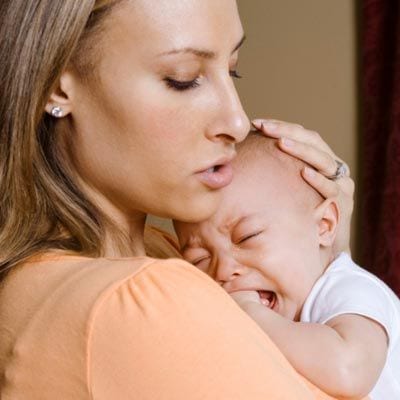
Feelings of sadness
When you dreamed of the birth of your little one you likely imagined nestling up to your sweet bundle of joy and savoring every tender moment. Instead you may find yourself feeling overwhelming sadness and feeling down or blue most of the time. Along with feelings of sadness, crying and tearfulness is another symptom of PPD. You may find that you don't actually cry, but instead feel an increased sense of unhappiness most of the time. Or you may find yourself having emotional outbursts over little things in your day. If this sense of sadness is prolonged and does not go away after a week or two like the baby blues, it could be PPD.
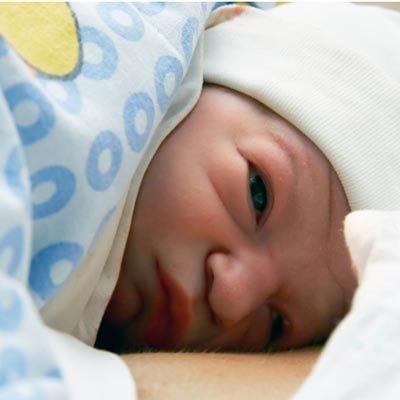
Difficulty bonding with baby. Feelings of guilt or inadequacy
During the first year of life babies are completely dependent on their parents. That intense attachment you feel to your baby is what you anticipate and expect, but sometimes mothers find that they just don't feel like they are attached to baby. They may feel inadequate to take care of their baby's needs or guilty about their feelings towards baby. Mothers can even feel resentful towards their baby if they are experiencing postpartum depression. It is important for new mothers to recognize these as symptoms of postpartum depression and not a doomed mother/child relationship.
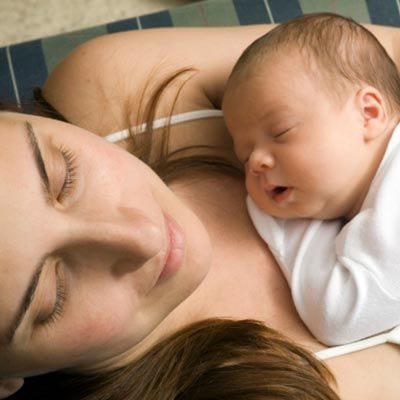
Fatigue, insomnia, and other sleep difficulties
A new baby can disrupt your sleep schedule and leave you feeling tired, worn out, and just plain exhausted some of the time. However, if you are feeling extreme fatigue and exhaustion most of the time you should talk to your doctor. Extreme fatigue can be an indicator of anemia or some other medical problem, but exhaustion and fatigue can also be a sign of PPD. Insomnia, difficulty falling asleep or staying asleep is another symptom of PPD.
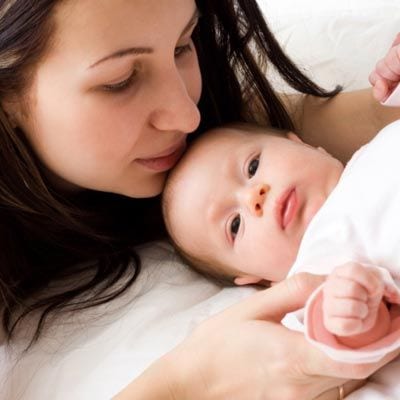
Decreased appetite/weight gain
Loss of appetite can be a symptom of postpartum depression. Having a baby can put a lot of demand on your body. Juggling a new baby can disrupt your schedule as well as your eating habits. If you are finding that you are “just not hungry” when you really should be this could be a sign of PPD. Alternatively some women turn to food when they are depressed. If you are experiencing weight gain or weight loss (outside of the normal postpartum weight loss) this could be a sign of PPD.

Loss of sex drive
Many women find a decrease in sex drive post baby. If you are noticing a loss of libido postpartum this could be a sign of postpartum depression. This symptom in and of itself is not necessarily worrisome, but in conjunction with other symptoms it could be an indicator of postpartum depression.
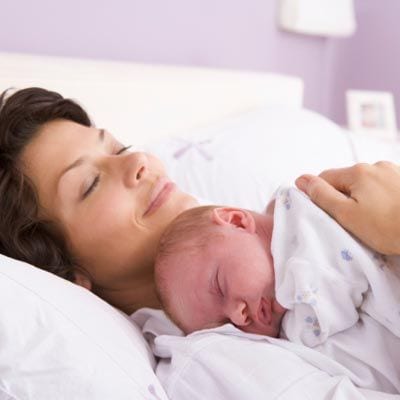
Withdrawing from family, friends, activities
One red flag of postpartum depression is withdrawing from friends and family. Once the hustle and bustle of adjusting to a new baby subsides new moms typically want to get back into a routine of doing the things they enjoyed prior to baby. If you are finding that you are not wanting to participate in activities that you normally enjoy, or you are withdrawing from friends and family this could be a sign of PPD. You may find you want to be alone or stay home most of the time and isolate yourself from others.

Wanting to harm baby or self
Postpartum depression can be very distressing to a new mother. While it is not necessary to have feelings of wanting to harm your baby or yourself to be diagnosed with PPD, this is probably the most troubling symptom. New mothers should be encouraged to talk to their health care provider right away if they are having any feelings of wanting to hurt their baby or themselves. Knowing in advance that this is a possible feeling that could occur postpartum and having an open dialog with your health care provider will help mothers to seek out help right away.
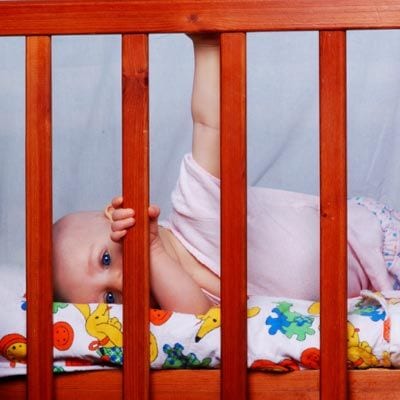
Postpartum Psychosis
Postpartum psychosis is very severe and includes all the symptoms of PPD along with symptoms of psychosis. It is extremely rare, but it is imperative for symptoms to be recognized right away. Symptoms can include paranoia, hallucinations or delusions, confused or irrational thinking, refusal to eat, memory loss, and attempts to harm self or baby. Onset of postpartum psychosis is rapid and usually occurs within the first two to three weeks of birth. New mothers and their support system should be aware of symptoms of postpartum psychosis and postpartum depression and work together to advocate treatment.
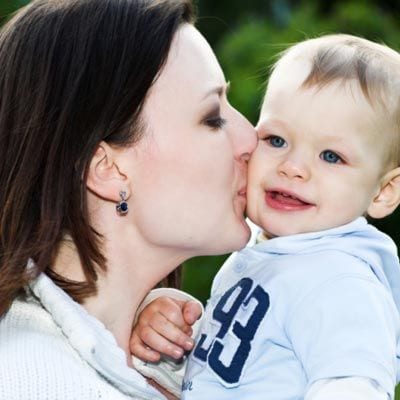
Treatment for PPD
Treatment for postpartum depression can include antidepressants and/or counseling. There are many antidepressants available to treat postpartum depression including medications safe to take while breastfeeding. New mothers can work with a therapist who is familiar with postpartum depression. Therapy alone may be sufficient for treatment for some women. If you are experiencing symptoms of postpartum depression there is no need to suffer, your doctor can help you sort out the best treatment for you.